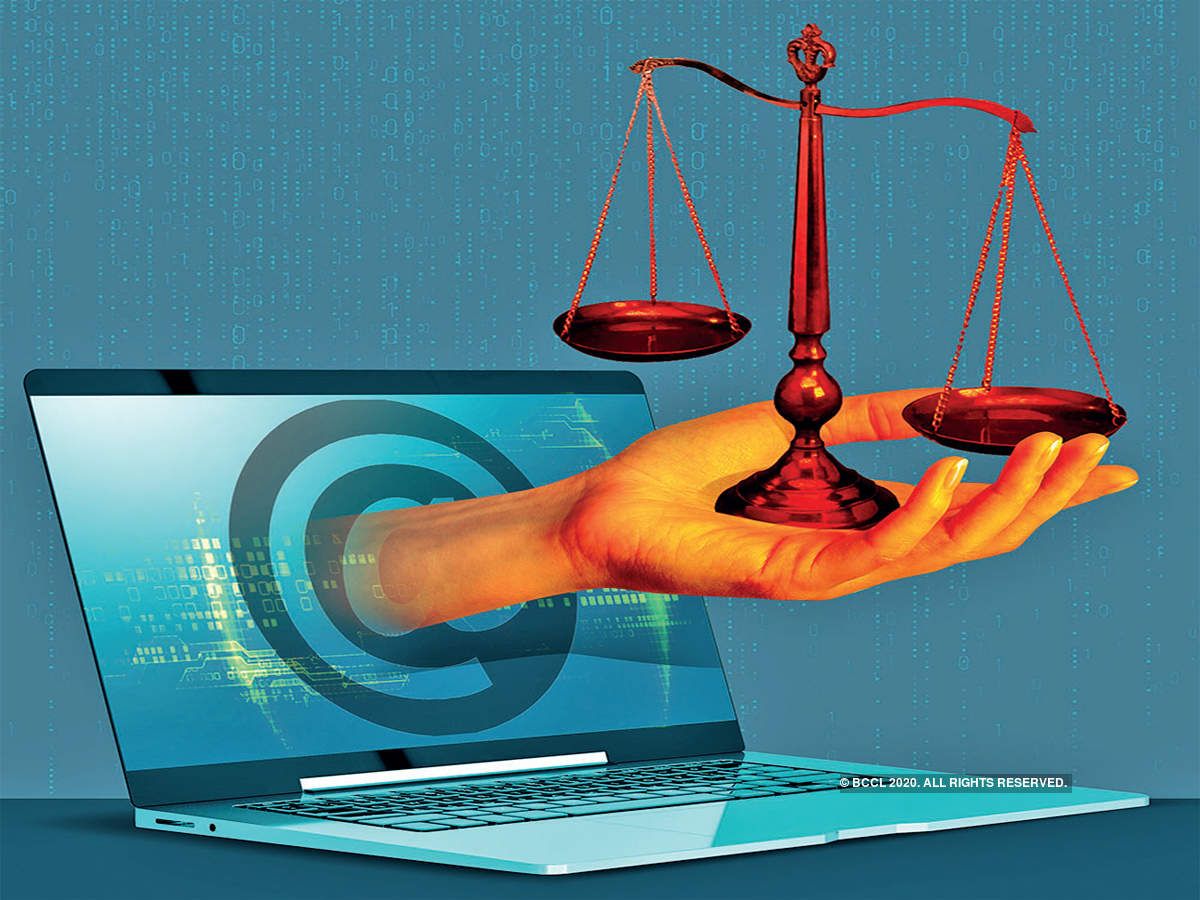New Facet of Legal Industry and Online Alternative Dispute Resolution amidst COVID-19 outbreak

The outbreak of COVID-19 has created a great havoc across the globe. This global pandemic was first seen in the month of December 2019 in the Wuhan City of China which gradually started to spread across different countries which has now caused well over 3 lakh deaths across the globe and there is no treatment, vaccine or medicine invented to effectively treat the same. The medical researchers across the globe are putting their efforts round the clock to discover a permanent prevention & treatment to such a deadly virus. With the outbreak showing no signs of abating, the worldwide disruption in all facets of life seems to continue indefinitely.
The situation in India is becoming grave with each day passing, while the whole nation still sits in a partial lockdown today. Various sectors like the Economic sector, Aviation sector, Real-Estates etc is facing a huge crisis in India. The legal sector is no exception and I'd discuss the impact which COVID-19 will bring have on the Legal Industry of India due to the current pandemic and in the coming years.

The Central Government announced the lockdown for the first time in 25th March, 2020 and since then courts all across the nation have been shut down physically. Today India stands at its 4.0 lockdown and the physical working mechanism of the court is still not effective enough at bringing about effective solution to dismiss pending cases and conducting trials and hearing. Amidst such a crucial period, the courts have tried to adopt themselves in a progressive outlook and are using various digital modes of conducting trials and hearings such that the heavy burden of pendency of cases on the judicial framework of this country doesn’t rise. The ardor that litigation once professed for being the champion of resolving disputes, it already seems to be disappearing. With social distancing measures being adopted for due cause by the judiciary, in these quarantine period, Alternate Dispute Resolution (ADR) shows the desired flexibility and versatility that can bring about resolution of disputes while taking into consideration and respecting social health concerns. Companies and various parties to a dispute is opting for methods of Alternative Dispute Resolution, the most effective being the Arbitration in these testing times, such that they could reach to a mutual agreement over their contracts such that neither parties are at an absolute loss. Various methods include Arbitration, Conciliation, Mediation and Adjudication. These methods are the future of the legal industry and the current pandemic period might act as the biggest example of showing how people can actually adapt to ADR methods in resolving disputes which will also help in reducing the pendency of cases in the courts. ADR based solutions have come to the rescue, since either of the parties can mutually reach terms without the need for any actual physical meet.
ARBITRATION

According to Oxford Learner’s Dictionary, Arbitration is the official process of settling an argument or a disagreement by someone who is not involved. The request for arbitration, the response, the request for appointment of the arbitral tribunal is done through electronic correspondence significantly. The early stages of communication between clients, lawyers, the arbitral institution and the arbitral tribunal can be made through the medium of email, telephonic or video conferencing. All the essential case management related requirements can be settled in an online mode. The statement of defence, the counter claim, the witness statements, the applications challenging the jurisdictions or the composition of the arbitral tribunal and replies thereto, the applications seeking interim relief, etc can all be done electronically. The use of digital signatures also made as an accepted form of signature by the arbitral tribunal.
Where arbitration truly promotes social distancing is in the conduct of hearings. The Arbitration and Conciliation Act, 1996 permits the arbitral tribunal to decide the dispute on the sole basis of pleadings, documents and submissions without recourse to oral hearings. If oral hearing are necessary, such hearings can also be conducted video conferencing in various video calling platforms like Zoom, Skype, Google meet and so on. The transition to interaction being exclusively across online platforms is merely the next step in the evolution of arbitration.
Arbitration does offer a solution to the crisis that has developed before the globe while permitting continuity of the resolution of disputes. The effective use of technology helps to unlock the true potentials of this alternative dispute mechanism. In an arbitration to be conducted through the online platform, all the parties to the dispute must possess adequate equipment and connectivity along with the requisite devices to be used so that it can facilitate the arbitral proceedings to be conducted smoothly without physical contact. Adequate security protocols, privacy and confidentiality measures are to be the top most priority during the arbitral proceedings. The requisites of conducting an online arbitration are mentioned in the report on “Information Technology in International Arbitration- Report of the ICC Commission on Arbitration and ADR”. It includes-
- Email and other electronic communications among the parties, the arbitrator or arbitrators and the administering body and the witnesses to a dispute.
- Storage of Information for access by the parties and the tribunal using portable (eg. DVDs, hard drives, and cloud storage etc.).
- Software with the help of which the parties’ respective cases can be presented in an electronic format rather than in hard copy format.
- Videoconferencing, multimedia presentations, and real time electronic transcripts. [1]
Information Technology can actually be effective for the parties in dispute to save time and costs and to ensure that the arbitration is managed and conducted efficiently. Amidst the outbreak of COVID-19 across the world, International Arbitration seemed to place much more emphasis on having a secure, confidential and an online flexible virtual data room where the parties in dispute, arbitrators and arbitral institution could access all pleadings and other written and oral submissions in real time.
MEDIATION

Mediation is a voluntary and non binding method of dispute resolution wherein a neutral and a credible third party facilitates a settlement between the parties in dispute.[1]It is a confidential and structured process where the mediator with the help of special communication, negotiation and social skills try to assist the matter in dispute so that they can arrive at a mutually acceptable solution themselves. The result of a successful mediation is a settlement agreement and not merely a decision. The objective behind using the medium of mediation is not to prove guilt or innocence but to encourage understanding, focus the parties on their interests and convincing them to reach their own agreement. The lockdown has kept all of us among the four walls of the house and conducting mediation in a physical environment is not suitable amidst social distancing. The effective use of the online platform can actually bring about the parties in dispute and the mediator in bringing about a mutual agreement. Various means of electronic devices can be put into force which we have already covered under the Arbitration heading.
DRAWBACK
The human element in certain aspects becomes very critical. The emotional, physical and tangible response often makes the case easier in apprehending and reaching an effective resolution to a dispute. In complicated matters, since oral hearings may require multiple participants and separate lines of communication to simulate a physical hearing, such hearings may not be feasible unless they are in-person hearings. There have always been privacy and confidentiality issues that have cropped up during when arbitral hearings are conducted via video conferencing. The new amendment to the act under section 42A secures confidentiality of arbitral proceedings and tries to resolve this issue. While almost all institutions have closed their offices, ADR offer continuity through technology platforms with all their case managers being available through their individual work from home policies and helps in continuing social distancing.
CONCLUSION
The post-COVID-19 world could either make or break the legal industry as we see it today. The legal industry might be one of the few industries, which stand to benefit in the long run from the virus. For instance bringing the legal industry in the digital era, especially in India, will make a vast impact. The courts across the country have embraced digital methods of conducting hearings, including the Kerela HC, Bombay HC, and now, even the Supreme Court. Parties in dispute can opt. for Alternative Dispute Resolution amidst the COVID-19 outbreak and can come to an effective solution to their dispute by also helping the judiciary in maintaining their focus on crucial matters and reducing the pendency of cases in the courts across the nation.
We can chat here in the discussion below so that we can continue this article even further with special mention of the contributor itself.
[1] Alternative dispute resolution in India: a brief overview, Aarushi Malik and Madhu Sweta, Lexology, (https://www.lexology.com/library/detail.aspx?g=18bee885-018c-49bb-abee-b949c77ae85c, last visited- 19.05.2020).
[1]International Chamber of Commerce, (https://iccwbo.org/publication/information-technology-international-arbitration-report-icc-commission-arbitration-adr/last visited – 19-05-2020).

Comments ()